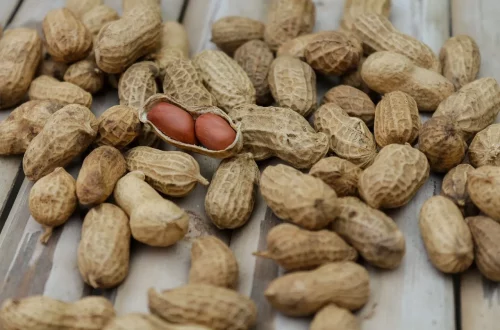
Can Weed Cause Hair Loss: Exploring the Connection and Myths
The topic of hair loss is often surrounded by various myths and misconceptions, leading individuals to seek answers through numerous sources. While genetic factors and lifestyle choices play a significant role in hair health, more unconventional influences, such as cannabis use, have sparked curiosity and concern. The relationship between cannabis and hair loss is not straightforward, and this ambiguity can fuel anxiety among users who may fear that their habits could lead to undesirable side effects, including thinning hair or baldness.
Cannabis, known for its psychoactive properties, has gained popularity for its potential therapeutic benefits. However, the conversation surrounding its impact on physical health, particularly hair, is still evolving. Many users are left wondering whether their cannabis consumption could be contributing to hair loss, or if such claims are merely urban legends. As the stigma surrounding cannabis diminishes and more individuals turn to it for relief from various ailments, understanding the possible consequences on hair health becomes increasingly relevant.
In this exploration, we will delve into the various factors that may influence hair loss, examine the biological mechanisms at play, and address the myths and realities surrounding cannabis use and hair health. By shedding light on these aspects, we aim to provide a clearer picture for those navigating the often murky waters of cannabis-related health concerns.
Understanding Hair Loss: The Basics
Hair loss, or alopecia, can occur due to a range of factors, including genetics, hormonal changes, medical conditions, and environmental influences. The human scalp typically has around 100,000 to 150,000 hair follicles, and it’s common to lose approximately 50 to 100 hairs daily as part of the natural hair growth cycle. However, when hair loss exceeds this rate, it can lead to thinning hair or bald patches.
Genetic predisposition, particularly androgenetic alopecia (commonly known as male or female pattern baldness), is the most prevalent cause of hair loss. This condition is influenced by hormones and genetic factors, leading to the gradual shrinking of hair follicles. Other hormonal changes, such as those occurring during pregnancy or menopause, can also trigger temporary hair loss.
Nutritional deficiencies are another critical factor affecting hair health. A balanced diet rich in vitamins and minerals is essential for maintaining healthy hair. Deficiencies in iron, zinc, vitamin D, and various B vitamins can lead to increased hair shedding. Stress, both physical and emotional, has also been linked to hair loss. Conditions like telogen effluvium, which often arise from significant stress or trauma, can result in temporary hair thinning.
In addition to these factors, certain medical conditions such as thyroid disorders, autoimmune diseases, and scalp infections can contribute to hair loss. Understanding these underlying causes is vital for anyone concerned about their hair health, as addressing the root of the issue can often lead to effective treatment options.
The Biological Impact of Cannabis on the Body
Cannabis contains numerous compounds, including cannabinoids like THC (tetrahydrocannabinol) and CBD (cannabidiol), which interact with the body’s endocannabinoid system. This system plays a crucial role in regulating various physiological processes, including mood, appetite, pain sensation, and immune response. While research on the full effects of cannabis is still ongoing, some studies suggest that cannabinoids may have both positive and negative impacts on health.
One area of interest is how cannabis may influence hormone levels, particularly cortisol, which is a stress hormone. Elevated cortisol levels can contribute to hair loss by disrupting the hair growth cycle. Some users report that cannabis helps alleviate stress and anxiety, potentially lowering cortisol levels and promoting a healthier environment for hair growth. Conversely, excessive cannabis use could lead to increased stress in certain individuals, particularly if it interferes with daily responsibilities or personal relationships.
Moreover, cannabis has anti-inflammatory properties, which may benefit scalp health. Inflammation can lead to various scalp conditions that contribute to hair loss, such as folliculitis or psoriasis. By reducing inflammation, cannabis may promote a healthier scalp environment, potentially aiding in hair retention.
However, the method of consumption can also play a role. Smoking cannabis can expose the body to harmful substances that may negatively affect overall health, including hair health. Additionally, lifestyle factors associated with cannabis use, such as poor diet or lack of exercise, could indirectly contribute to hair loss.
Overall, while cannabis may have certain benefits for stress relief and inflammation reduction, its impact on hair health is complex and not yet fully understood.
Debunking Myths: Cannabis and Hair Loss
As with many topics surrounding cannabis, misconceptions abound regarding its effects on hair loss. One prevalent myth is that cannabis directly causes hair thinning or baldness. However, current research does not support this claim. Most studies examining cannabis use have focused on its psychological and physiological effects rather than its direct impact on hair follicles.
Another common belief is that smoking cannabis leads to hair loss due to the harmful substances released during combustion. While smoking can have adverse health effects, including those on the lungs and cardiovascular system, the relationship between smoking cannabis and hair loss remains unsupported by scientific evidence. It is essential to differentiate between correlation and causation; just because some users experience hair loss does not mean that cannabis is the culprit.
Moreover, some anecdotal reports suggest that cannabis can lead to increased hair growth due to its purported ability to stimulate blood flow and promote a healthier scalp. While this is a hopeful notion, concrete scientific evidence backing this claim is currently lacking. Research is still needed to explore the potential benefits of cannabinoids on hair growth and health.
Finally, it’s essential to consider individual responses to cannabis. Factors such as genetics, overall health, and lifestyle choices can significantly influence how cannabis affects an individual. What may lead to hair loss in one person could have no effect or even a positive impact on another.
Conclusion: Navigating Cannabis Use and Hair Health
In summary, the connection between cannabis use and hair loss is not straightforward. While various factors contribute to hair health, including genetics, nutrition, and stress, cannabis has not been definitively shown to cause hair loss. Instead, its effects may be more nuanced, potentially offering benefits for some while posing risks for others.
Individuals concerned about hair loss should focus on maintaining a balanced lifestyle, including a nutritious diet, regular exercise, and stress management techniques. If cannabis use plays a role in one’s overall wellness, it’s crucial to monitor its effects on health and well-being.
Ultimately, anyone experiencing significant hair loss should consult with a healthcare professional to explore potential underlying causes and appropriate treatment options. This article is for informational purposes only and does not constitute medical advice. Always seek the guidance of a qualified healthcare provider for health-related concerns.




